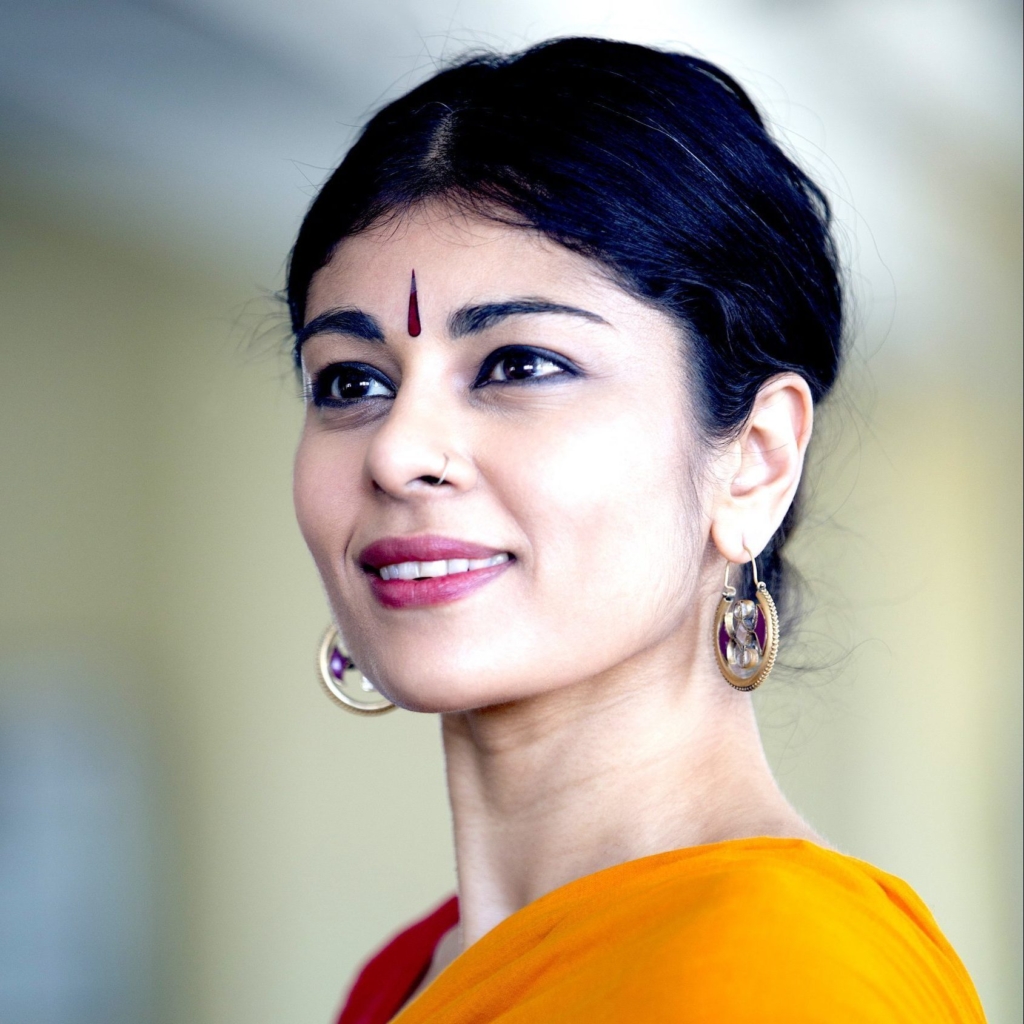
By Steve Sucato
As part of The National Center for Choreography at The University of Akron’s Ideas in Motion: 21st Century Dance Practices capsule series and research residency, choreographer Ashwini Ramaswamy worked with GroundWorks DanceTheater’s dancers in a creative exploration session on March 17 at Cleveland State University’s Department of Theatre & Dance’s studios.
A Choreographic Associate and featured performer with Minneapolis-based Ragamala Dance Company, Ramaswamy has a background in the classical Indian dance form of Bharatanatyam. Her work references ancient myths and ritualistic practices, global literature and poetry, and the mixed media contemporary culture she has absorbed for 35 years.
Ramaswamy first came to NCCAkron in 2019 for a technical residency in support of her most recent work, Let the Crows Come that uses the metaphor of crows as messengers for the living and guides for the departed. This hour-long work for three dancers explores how memory and homeland channel guidance and dislocation. In it, Bharatanatyam dance is deconstructed and recontextualized to recall a memory that has a shared origin but is remembered differently by three dancers using three different dance technique approaches, Afro-Modern, Gaga, and Bharatanatyam.
Ramaswamy’s creative exploration session with GroundWorks’ dancers was an exchange of dance cultures as well as a continuation of her personal exploration of developing new methodologies that aided in Let the Crows Come’s development.
The day began with a class led by Ramaswamy where GroundWorks’ dancers learned six elements from Bharatanatyam dance, then Ramaswamy performed a brief solo demonstrating those elements that was followed by a Q & A with her and the dancers. The second part of the session had GroundWorks’ dancers performing an excerpt from a contemporary dance work they were creating with choreographer Peter Chu for GroundWorks Spring Performance Series 2022. Then Ramaswamy and the dancers merged the six elements of Bharatanatyam with some of the contemporary movement GroundWorks’ dancers showed, deconstructing and augmenting both elements to create six new dance vocabulary steps that were used to create a new 2-minute dance.
I talked with Ramaswamy afterward about the creative session with GroundWorks and what she felt she gained from it.
What drew you to wanting to research other forms of dance?
It’s a complicated question because I will always have such a deep love for Bharatanatyam and how much I can learn and explore within that form. But for me seeing other dance forms that I love and admire and different ways people’s bodies can move, I was curious how my [movement] perspective could influence that. Dance companies commission choreographers all the time to set work on them and they don’t necessarily practice the form of that company. But I didn’t see a space for classical Indian choreographers within that — I don’t think people even think of it. I want to try and change that.
How are you approaching doing that?
The outcome does not look like classical Indian dance, it is more of a directorship. I direct the dancers using Indian dance principals and converting, subverting and augmenting them as well as using different ideas to see what we can do. It’s another way for me to flex my choreographic muscles.
Entering the creative session with GroundWorks’ dancers, what were you hoping to get out of the process?
As I said, I was hoping to find new methods in working with dancers. So far I have worked with solo dancers but not too many groups. I have also not worked with highly trained dancers like GroundWorks dancers. I thought if I had a group of dancers to work with that were used to working with choreographers and collaborating on different movement ideas, what useful knowledge could I gain from that?
Do you feel your goals with the session were met?
Yes, I came up with a methodology of creation that I will now be able to use moving forward that is very valuable to me.
How was it like working with GroundWorks’ dancers?
I was very moved by how much the dancers enjoyed and appreciated my class with them in Bharatanatyam technique and when I performed for them. They were so interested and had so many questions about Bharatanatyam. They immediately saw the complexity, spirituality and value of this classical form that has evolved over thousands of years to be a part of the contemporary dance world. That give and take between us was really moving.
Photo of Ashwini Ramaswamy by Ed Boch.
